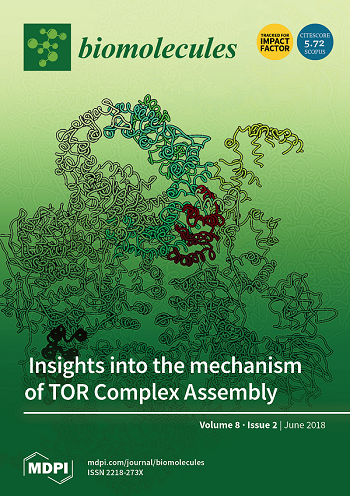Novel Fatty Acid Biomarkers in Psoriasis and the Role of Modifiable Factors: Results from the METHAP Clinical Study
IF 4.8
2区 生物学
Q1 BIOCHEMISTRY & MOLECULAR BIOLOGY
引用次数: 0
Abstract
Psoriasis is a chronic, immune-mediated skin condition with significant metabolic complications. Although lipid metabolism is linked to its pathogenesis, reliable biomarkers and the impact of modifiable factors remain underexplored. The aim of the present study was to identify potential biomarkers, study the affected metabolic networks, and assess the role of dietary and lifestyle factors in psoriasis. Plasma samples from 56 patients with psoriasis and 49 healthy controls were analyzed, as part of the Metabolic Biomarkers in Hashimoto’s Thyroiditis and Psoriasis (METHAP) clinical trial. Using Gas Chromatography-Mass Spectrometry 23 fatty acids and their ratios were quantified, revealing significant changes in psoriasis. Specifically, lower levels of α-linoleic acid (C18:3n3), linoleic acid (C18:2n6), and gamma-linolenic acid (C18:3n6) were observed along with higher levels of eicosatrienoic acid (C20:3n3), eicosapentaenoic acid (C20:5n3), and erucic acid (C22:1n9). Total polyunsaturated fatty acids (PUFA) were significantly decreased, and the ratio of saturated to total fatty acids (SFA/Total) was increased in psoriasis (p-values < 0.0001). Linear regression identified α-linoleic acid, linoleic acid, eicosatrienoic acid, and eicosapentaenoic acid as potential biomarkers for psoriasis, adjusting for demographic, dietary, and lifestyle confounders. Network analysis revealed key contributors in the metabolic reprogramming of psoriasis. These findings highlight the association between psoriasis and fatty acid biomarkers of inflammation, insulin resistance and micronutrients deficiency, suggesting their potency in disease management.银屑病中的新型脂肪酸生物标记物及可改变因素的作用:METHAP 临床研究的结果
银屑病是一种由免疫介导的慢性皮肤病,具有严重的代谢并发症。虽然脂质代谢与银屑病的发病机制有关,但可靠的生物标志物和可改变因素的影响仍未得到充分探索。本研究旨在确定潜在的生物标志物,研究受影响的代谢网络,并评估饮食和生活方式因素在银屑病中的作用。作为桥本氏甲状腺炎和银屑病代谢生物标志物(METHAP)临床试验的一部分,本研究分析了 56 名银屑病患者和 49 名健康对照者的血浆样本。利用气相色谱-质谱法对 23 种脂肪酸及其比率进行了定量分析,结果显示银屑病患者的脂肪酸发生了显著变化。具体来说,α-亚油酸(C18:3n3)、亚油酸(C18:2n6)和γ-亚麻酸(C18:3n6)的含量较低,而二十碳三烯酸(C20:3n3)、二十碳五烯酸(C20:5n3)和芥酸(C22:1n9)的含量较高。银屑病患者的多不饱和脂肪酸(PUFA)总量明显减少,饱和脂肪酸与总脂肪酸之比(SFA/Total)增加(P值<0.0001)。线性回归确定α-亚油酸、亚油酸、二十碳三烯酸和二十碳五烯酸为银屑病的潜在生物标记物,并对人口、饮食和生活方式等混杂因素进行了调整。网络分析揭示了银屑病代谢重编程的关键因素。这些发现突显了银屑病与炎症、胰岛素抵抗和微量元素缺乏的脂肪酸生物标志物之间的关联,表明它们在疾病管理中的作用。
本文章由计算机程序翻译,如有差异,请以英文原文为准。
求助全文
约1分钟内获得全文
求助全文
来源期刊

Biomolecules
Biochemistry, Genetics and Molecular Biology-Molecular Biology
CiteScore
9.40
自引率
3.60%
发文量
1640
审稿时长
18.28 days
期刊介绍:
Biomolecules (ISSN 2218-273X) is an international, peer-reviewed open access journal focusing on biogenic substances and their biological functions, structures, interactions with other molecules, and their microenvironment as well as biological systems. Biomolecules publishes reviews, regular research papers and short communications. Our aim is to encourage scientists to publish their experimental and theoretical results in as much detail as possible. There is no restriction on the length of the papers. The full experimental details must be provided so that the results can be reproduced.
 求助内容:
求助内容: 应助结果提醒方式:
应助结果提醒方式:


